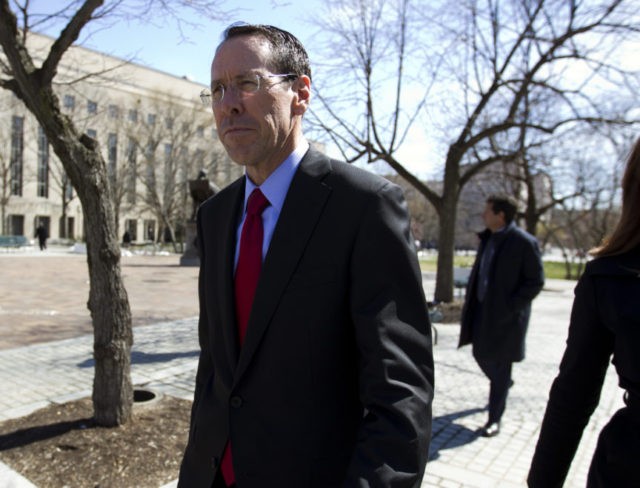WASHINGTON (AP) — Leon said the government failed to prove that the merger would lead to higher prices and other harm to consumers. Despite Justice Department lawyers taking their “best shot,” he said, their evidence was “too thin a reed for this court to rely on.”
The judge added that he wouldn’t temporarily block the merger for a possible appeal by the government. The “drop dead” deadline for completing the merger is June 21. If it’s not wrapped up by then, either company could walk away, and AT&T would have to pay a $500 million breakup fee.
The ruling was a stinging defeat for the Justice Department. Opposing the merger forced federal antitrust lawyers to argue against standing legal doctrine that favors mergers among companies that don’t compete directly with each other.
Another wild card: When first announced in October 2016 , the deal drew fire from then-candidate Donald Trump, who promised to kill it “because it’s too much concentration of power in the hands of too few.” Trump has also publicly feuded with Time Warner’s CNN, calling it “failing” and a purveyor of “fake news.” The president’s statements didn’t come up during the trial.
John Bergmayer, senior counsel at the consumer group Public Knowledge, said the decision could have long-lasting negative effects thanks to “the many other mergers it will encourage.” In a statement, Bergmayer called for “reinvigorated regulatory oversight of the video marketplace.”
Dallas-based AT&T is a wireless, broadband and satellite behemoth that became the country’s biggest pay-TV provider with its 2014 purchase of DirecTV. It claims about 25 million of the 90 million or so U.S. households that are pay-TV customers.
AT&T general counsel David McAtee said the company plans to close the deal on or before June 20.

COMMENTS
Please let us know if you're having issues with commenting.